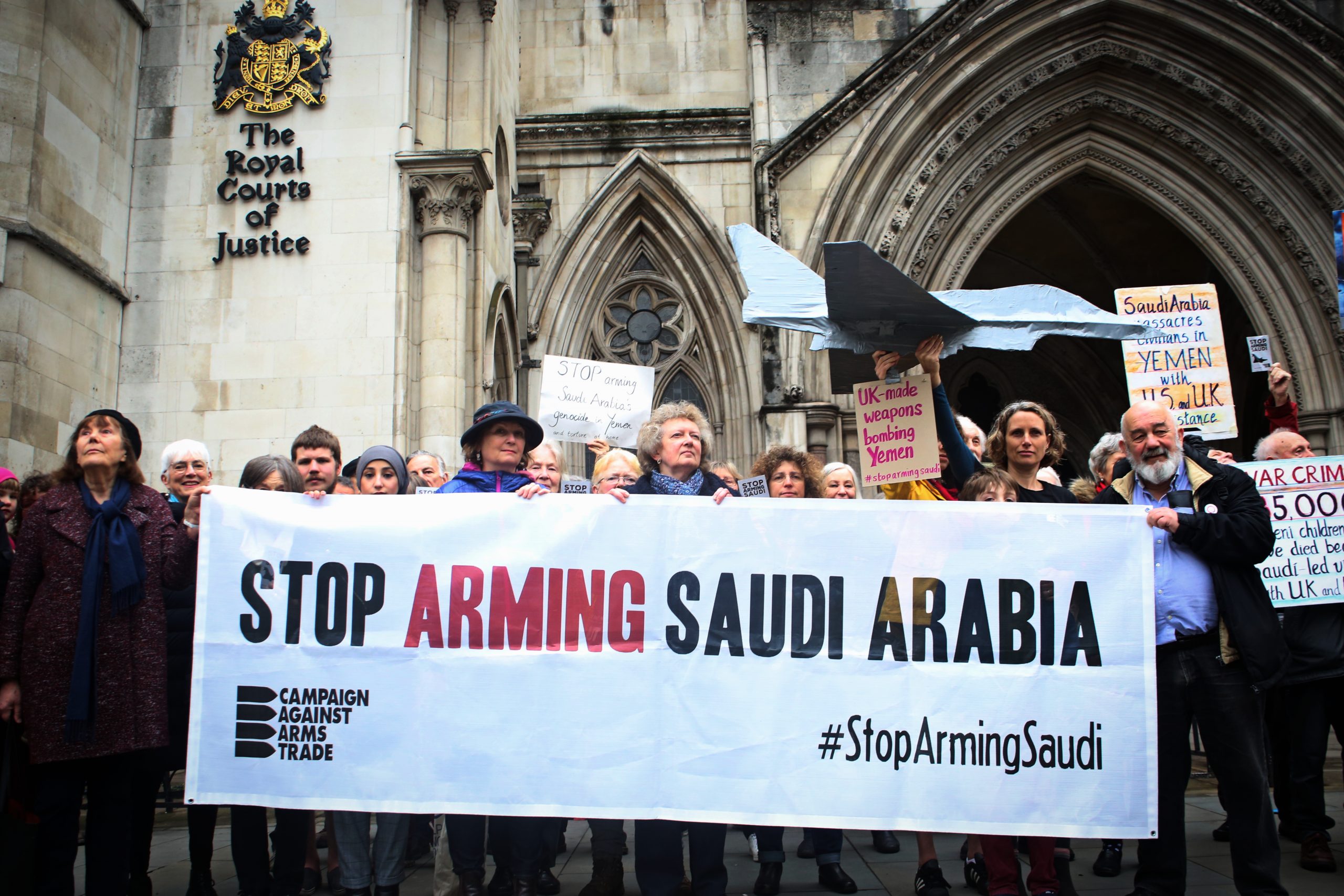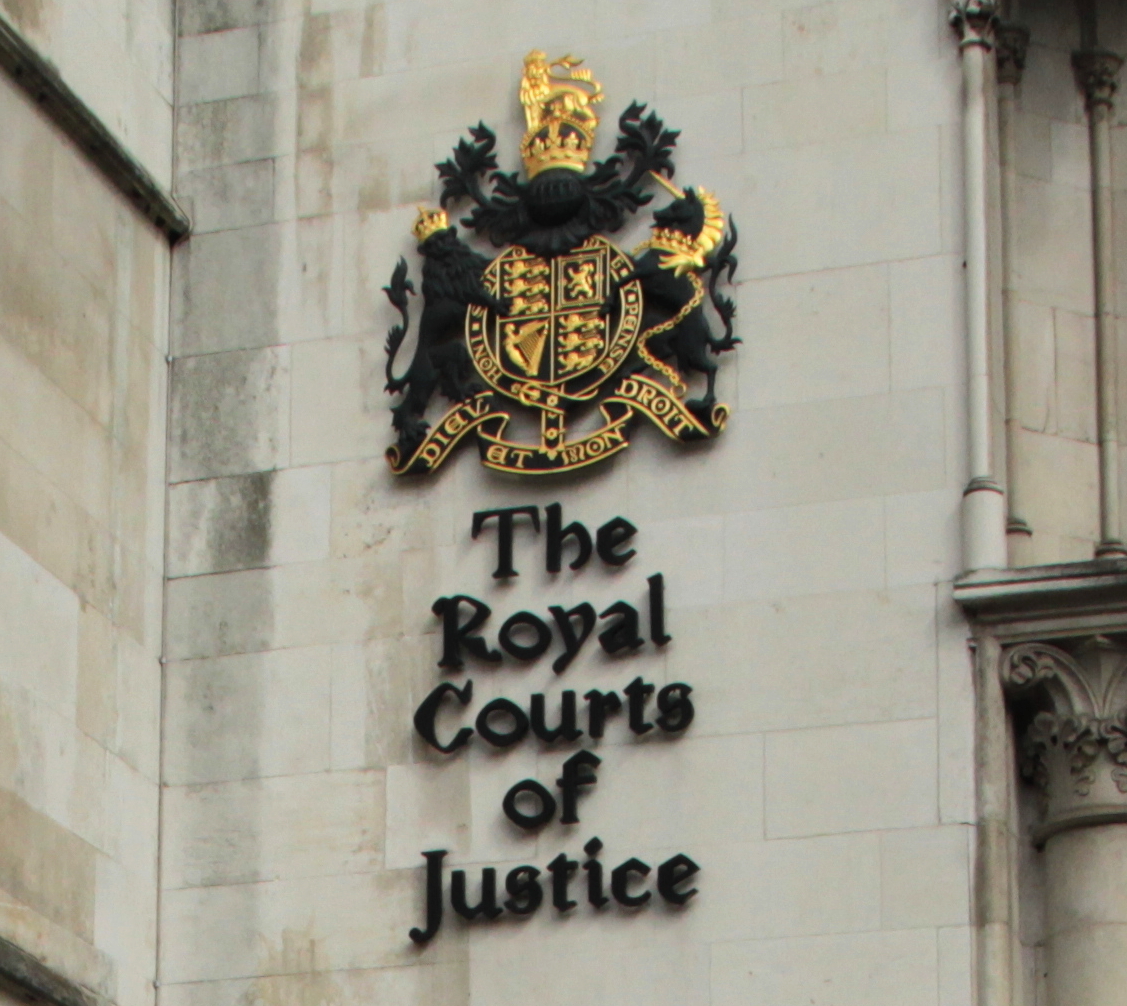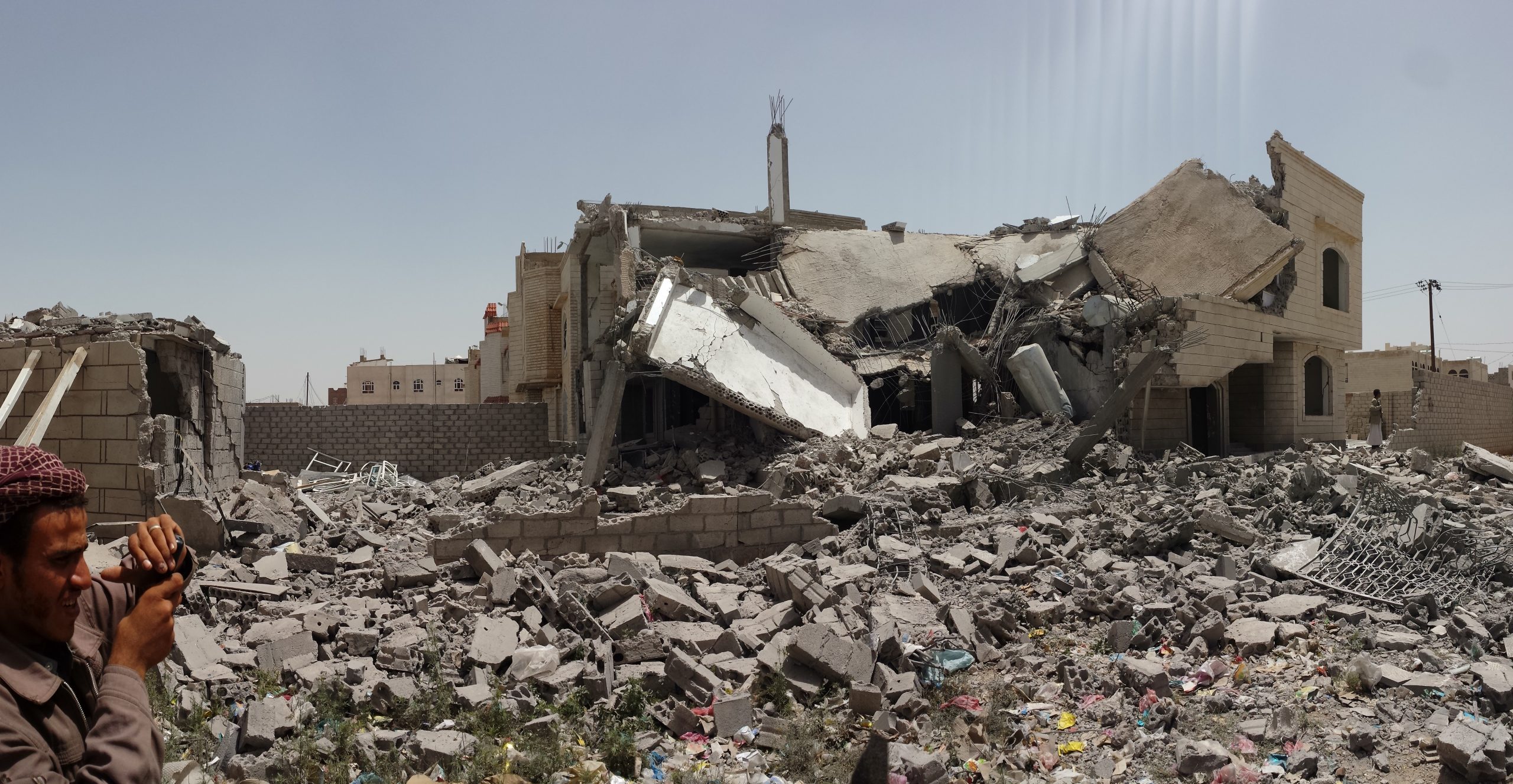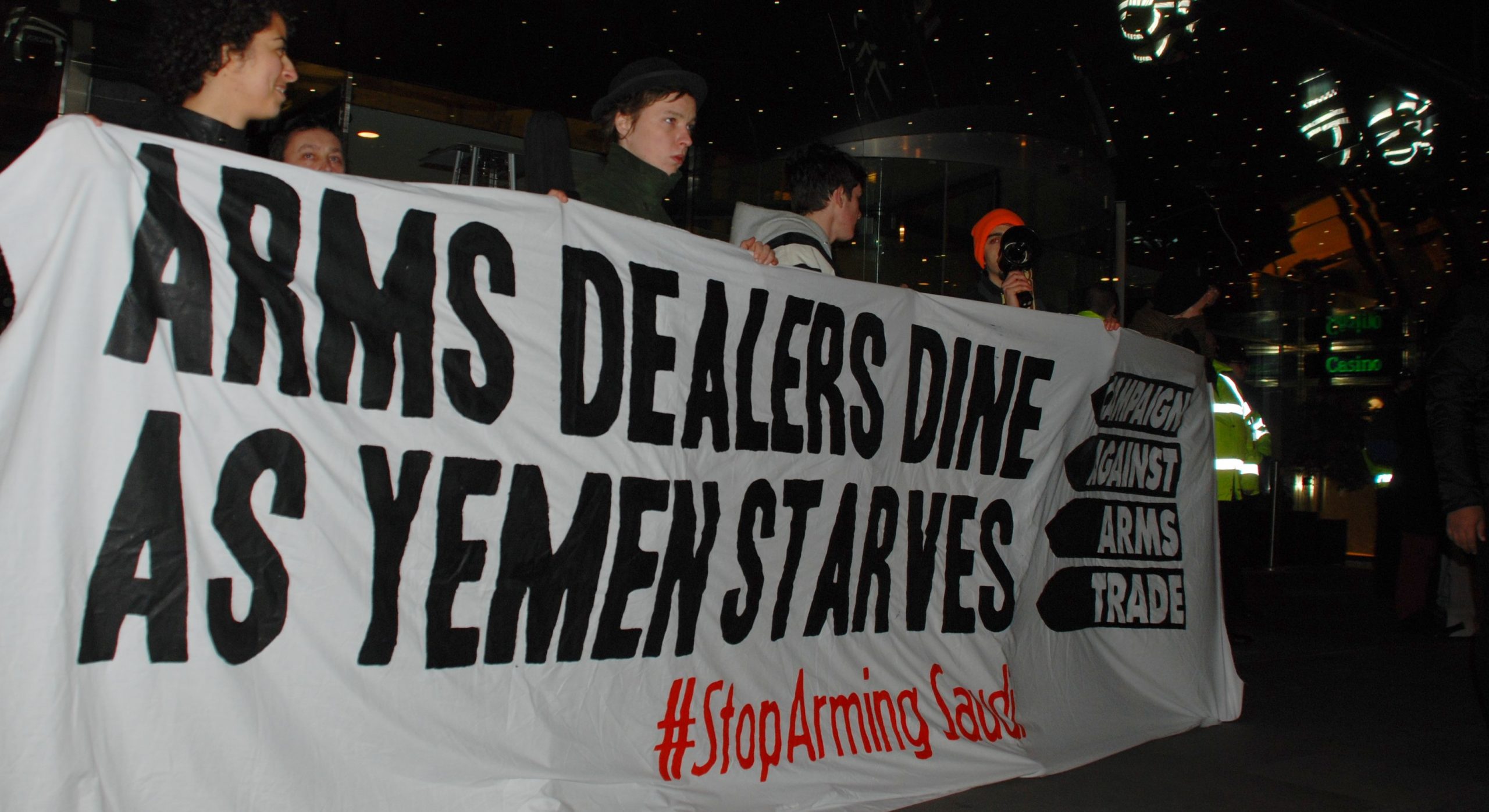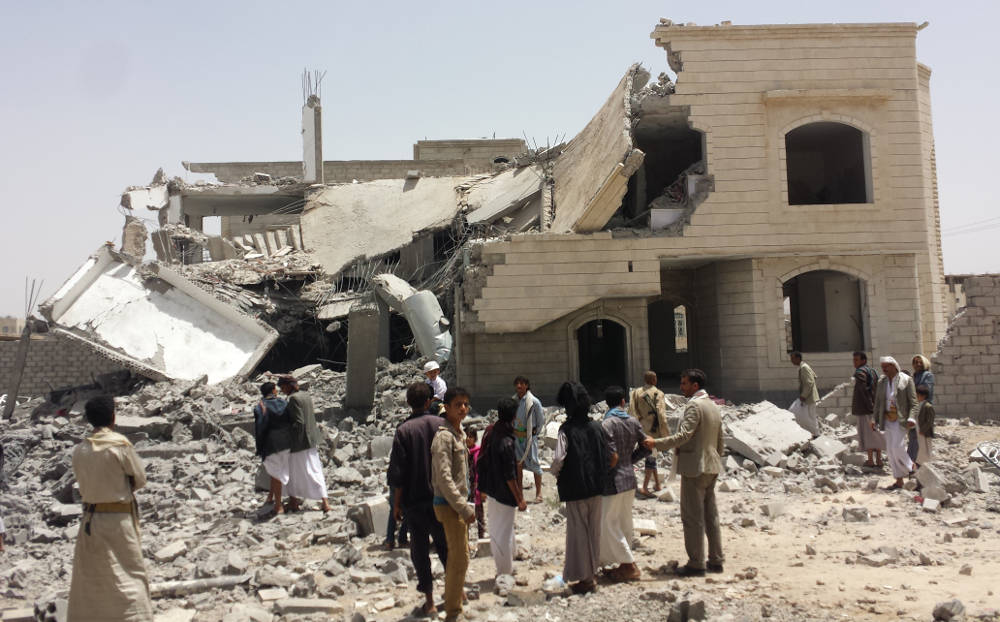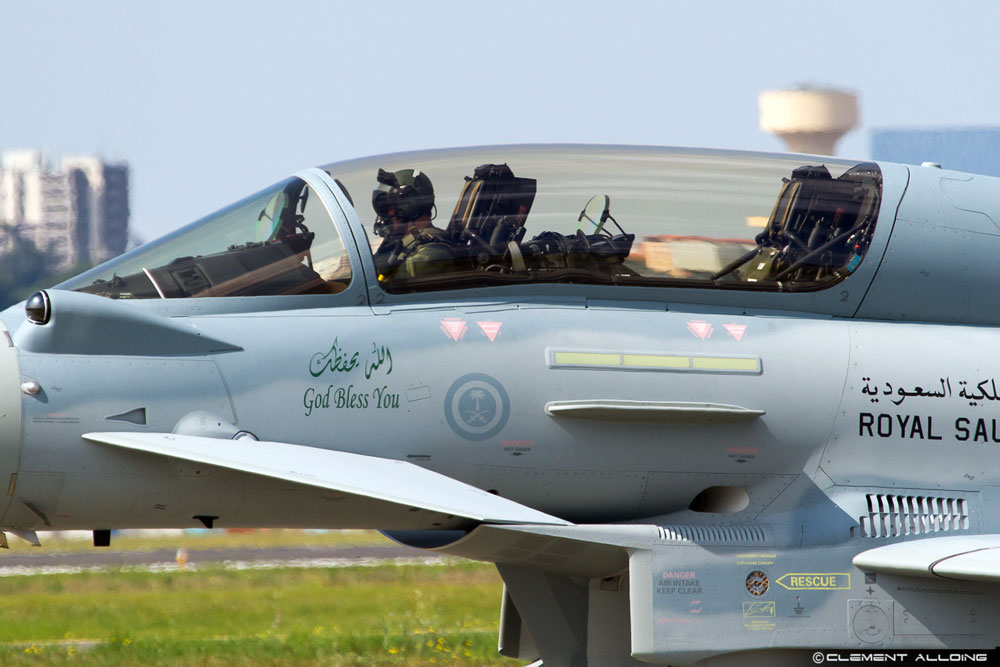The UK government continues to license the export of weapons for use in the war in Yemen. CAAT is challenging this in the courts.
UK arms sales back on trial
On 26 October 2020 CAAT filed a new Judicial Review application into the legality of the UK government’s decision to renew arms sales to the Saudi-led coalition that is bombing Yemen.
On 20 April 2021 CAAT was granted permission for its legal challenge to proceed to the High Court. The hearing took place at the High Court of Justice from 31 January to 2nd February 2023.
Background
The government has refused to stop arms sales to Saudi Arabia, despite overwhelming evidence of violations of International Humanitarian Law in Yemen.
Since 2015, bombing by the Saudi-led coalition has targeted schools and hospitals, food supplies, weddings and funerals, with UK weapons playing a central role.
UK rules prohibit exports in such circumstances, but the government refuses to stop the sales. Instead, the government has done everything it can to maintain its relationship with Saudi Arabia, the UK’s biggest arms customer.
Given the evidence we have heard and the volume of UK-manufactured arms exported to Saudi Arabia, it seems inevitable that any violations of international humanitarian and human rights law by the coalition have involved arms supplied from the UK. This constitutes a breach of our own export licensing criteria.
Parliament’s International Development and Business, Innovation and Skills Committees, Sept 2016
Stopping arms sales
CAAT’s first Judicial Review was formally launched in March 2016. More that three years later, on 20 June 2019, the Court of Appeal ruled in CAAT’s favour. It found that it was ‘irrational and therefore unlawful’ for the Secretary of State for International Trade to have granted licences for the export of arms to Saudi Arabia for use in Yemen without making any assessment as to whether violations of International Humanitarian Law had taken place.
As a result of this landmark decision, the government was ordered to retake all decisions to export arms to Saudi Arabia in accordance with the law and to stop issuing new arms export licences to Saudi Arabia. The government applied the same restrictions to licences to its coalition partners, UAE, Bahrain, Kuwait and Egypt, for use in Yemen.
As a result of our action, hundreds of millions of pounds of arms sales to the Saudi-led coalition were put on hold.
Government resumption
However the government refused to accept the Court of Appeal judgment and was granted permission to appeal to the Supreme Court. This case was due to be heard in November 2020.
Then, on 7 July 2020, the Secretary of State for International Trade Liz Truss issued a written statement to Parliament. She said the government had completed the review ordered by the Court of Appeal, and had determined that any violations of international law were “isolated incidents”.
The government would therefore resume issuing new licences for arms sales for use in Yemen: “clearing the backlog of licence applications for Saudi Arabia and its coalition partners.”
Second judicial review
We considered this to be an appalling decision, whose conclusion is not compatible with the evidence – and it is astonishing that the government could conclude that such licences could comply with the UK’s export licensing criteria. In other ways this is no surprise – the government has done all it can to maintain business as usual, whatever atrocities the Saudi-led coalition has committed.
Accordingly, on 26 October 2020 CAAT filed a new Judicial Review application into the legality of the UK government’s decision to renew arms sales to the Saudi-led coalition that is bombing Yemen.
CAAT challenged the government’s new decision on several grounds, including the claim that there were only a “small number” of “possible violations” of International Humanitarian Law committed by Saudi Arabia, the claim that there was no “pattern” to these violations, and the conclusion that, as a result, there was no “clear risk” that UK arms might be used to commit further violations.
On 20 April 2021 CAAT was granted permission for its challenge to proceed to the High Court. After much delay, the hearing for this second judicial review finally took place from 31 January – 2 February 2023. As before, this included both open and closed sessions, with CAAT represented in the latter by security-cleared Special Advocates, as neither CAAT nor our lawyers in the open session were allowed to attend the closed hearing, or see the evidence presented there. The case was heard at the High Court of Justice by Lord Justice Popplewell and Mr. Justice Henshaw.
Unfortunately, on 6 June, the judges handed down their judgment, rejecting CAAT’s case on all grounds.

